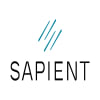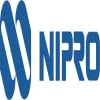Industry Pulse aims to complement BioPharma Dive’s daily news coverage with a data-driven look at a few of the top stories from the previous quarter. This edition focuses on M&A, the red-hot field of immunotherapy and growing biosimilar competition in the U.S.
Biotech closed out the summer on a tear, fueled by Gilead Sciences Inc. finally opening its wallet to pick up Kite Pharma, Inc. and its CAR-T technology for $11.9 billion.
The deal, which was followed a day later by a landmark approval for Novartis AG’s rival CAR-T Kymriah (tisagenlecleucel), spurred biotech stocks sharply higher.
Yet, M&A activity for the industry as a whole remains relatively muted, with few blockbuster deals outside of Johnson & Johnson’s $30 billion acquisition of Swiss biotech Actelion Ltd.

Over the first half of 2017, both total deal count and aggregate transaction value fell to the lowest levels since 2013, according to data compiled by Evaluate Pharma.
It’s certainly not for a lack of cash that has the top biopharmas sitting on the sidelines. While Gilead’s acquisition of Kite will likely eat up a good portion of its cash hoard, many companies have considerable cash holdings ready to be tapped.

Continued pushback on drug pricing may be playing a role in holding back new deals, as payers have become more aggressive in demanding higher rebates and discounts. Lower-than-expected profit margins — according to this line of thinking — could dampen larger companies’ willingness to pay a premium.
Perhaps more significantly, though, biotech has become increasingly expensive in the therapeutic areas attracting the most attention.
Biotechs are priciest in oncology, where rapid clinical advances coupled with attractive commercial returns have driven soaring interest across the industry.

Japanese pharma Takeda Pharmaceutical Company, for example, paid $24 a share to acquire Ariad Pharmaceuticals, Inc and its cancer drugs in January — a 75% premium to the company’s stock price the day before.
"I think what we've seen, valuations are really hard to justify," said Elias Zerhouni, head of R&D at Sanofi SA, on an earnings call in July while discussing business development. Sanofi had tried to acquire cancer specialist Medivation, Inc. last year in a public bidding war it eventually lost to Pfizer Inc.
Pfizer ended up paying $81.50 per share to acquire Medivation, more than double what the biotech traded at before takeover rumors first surfaced.
Looking more broadly, the Nasdaq Biotechnology Index (NBI) is up more than 23% since the beginning of the year, reflecting industry-wide stock gains.

Another hurdle to M&A? Continued uncertainty about the prospects for corporate tax reform, a key issue for an industry with tens of billions of dollars in cash held offshore.
"Right now I believe we need to see tax reform or the absence of tax reform to understand what the market values are," Pfizer CEO Ian Read said on a call with analysts in August.
Immunotherapy’s moment
Nowhere is the industry's surging interest in cancer more apparent than in immuno-oncology. Rapid commercial success for Bristol-Myers Squibb’s Opdivo (nivolumab) and Merck & Co.’s Keytruda (pembrolizumab) has quickly turned both drugs into blockbusters.

Three more checkpoint inhibitors — Roche Holding AG’s Tecentriq (atezolizumab), Pfizer and Merck KGaA’s Bavencio (avelumab) and AstraZeneca plc’s Imfinzi (durvalumab) — have since joined Opdivo and Keytruda on the market.
Each drugmaker is moving quickly to expand their drug’s market share, particularly in lung cancer where the commercial opportunity appears the greatest. There, Merck’s clinical success in first-line lung cancer has helped Keytruda rapidly gain on Opdivo’s overall sales lead

The importance of developing a flagship checkpoint inhibitor was on clear display at the end of July, when the failure of AstraZeneca’s Imfinzi to hit its first mark in the MYSTIC study erased over $10 billion from the British drugmaker’s market capitalization.

Cancer immunotherapy is also expanding beyond checkpoint inhibitors, though, with hundreds of combination studies underway to test new drug pairings. And Gilead’s deal for Kite, together with Kymriah’s approval, showcase the commercial emergence of T-cell therapies.
Biosimilars begin to threaten top biologics
While cancer may currently be the hottest therapeutic field in biopharma, the ranks of the world’s top-selling drugs are still dominated by a handful of biologic drugs for chronic inflammatory conditions. AbbVie, Inc’s Humira (adalimumab), Amgen, Inc’s Enbrel (etanercept) and Johnson and Johnson’s Remciade (infliximab) all earned more than $5 billion in the U.S. last year.
Yet, as each begins to near the end of its patent life, biosimilar competition could soon begin to eat away at those blockbuster franchises. In Europe, for example, where Merck sells Remicade, entry of multiple copycat biologics has already eroded revenues.

As more of the copycat biologics are approved and launched, biologic makers will feel the pinch. But the discounts for biosimilars look likely to be smaller than price cuts seen with generic drugs, due to higher development costs and greater barriers to entry.
Last October, Pfizer launched its biosimilar Inflectra (infliximab-dyyb) at only a 15% discount to the wholesale acquisition cost (WAC) of Remicade, although the drugmaker emphasizes rebates and discounts to payers mean the actual price paid is less.
(Average selling prices (ASP), calculated net of rebates and reported by drugmakers to the Centers for Medicare and Medicaid Services, give some indication of this dynamic.)

Merck subsequently began selling its biosimilar Renflexis at a steeper 35% discount, further adding to the competitive threat to Remicade.
Still, those lower prices may not quickly translate into market share. J&J expects a gradual shift to the cheaper copies and has secured contracts with payers to help lock out the biosimilars.
"In the commercial insurance space our lower-priced Inflectra has not received access at parity to Remicade and remains in a disadvantaged position despite recent price increases taken by J&J," Pfizer said in a statement on Inflectra’s launch. (Those increases now mean Inflectra’s list price is now closer to a 20% discount to Remicade.)
While J&J is the first to see competition from multiple biosimilars to one of its top brands, it is less at risk than others in the industry.
AbbVie and Amgen both earn more than half of total revenues from biologic drugs set to face biosimilar competition. And Roche’s trio of top-selling biologics could soon be under threat as well.























